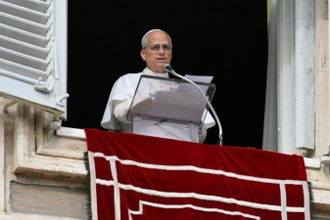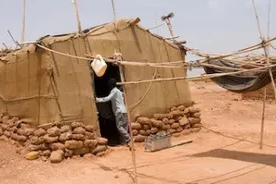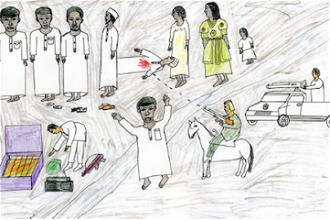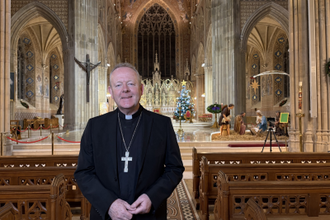South Sudan: School brings hope in a war zone
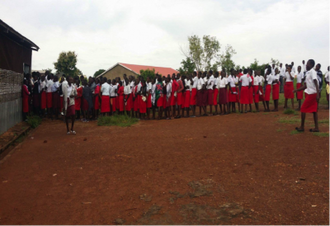
Waiting for school to start
Source: SPICMA
The province of Wau is one of the most dangerous places in strife-torn South Sudan. But a Jesuit school in the provincial capital, also named Wau, is bringing fresh hope. Loyola Secondary School (LSS), forced to close by the vicious civil war that separated South Sudan from Sudan, was re-opened in 2008 by the East African province of the Society of Jesus.
"This school serves as a sanctuary for students in an ethnically diverse country, bringing them together for studying and learning," says its principal, Fr Beatus Mauki SJ.
Despite continuing violence, he says, LSS "has managed to create a unique space where young men and women can dream of a better future and begin to acquire the skills that will help them construct that future."
Fr Mauki trained as a psychiatric counselor and worked for the Jesuit Refugee Service, so he speaks from experience as he goes on: "One of the first consequences of trauma is loss of imagination. A traumatized person becomes incapable of imagining a future that is better or different.
"However, LSS gives students the space to look beyond and aspire to reach their full potential. The school provides an opportunity to enjoy their youthfulness."
This is rare in the context of South Sudan, where children are often recruited as child soldiers or at the very best have to look after younger siblings, depriving them of the chance of education.
And, of course, poverty is an overriding factor. A recent survey found that 70 per cent of children regularly arrive in school without breakfast. But things are changing with the introduction of a school feeding programme funded by SPICMA (Special Projects in Christian Missionary Areas) and other charitable organizations.
Fr Mauki credits this programme with "improving the physical and mental capabilities of students" and "maintaining and promoting above-average academic performance."
The school started the 2017 academic year with a record 700 students. This was reduced to about 600 during a wave of violence that swept the area in March and April.
The school had to close for two weeks and a number of students did not return when the violence subsided because their parents had taken them to other areas as refugees. There are currently 587 students, 320 girls and 267 boys.
The feeding programme provides breakfast and lunch for all of the. Breakfast is semolina or wheat porridge and lunch of meat or beans and rice. For most pupils the school meals are their only food of the day.
This is particularly true of the nearly 60 percent living in refugee camps, some of whom have lost parents in conflict. But all are affected by the political and economic situation which, says Fr Mauki, "has left many children and young people vulnerable to famine and sickness. Every day students struggle to reach school." And he adds, the quality of education is a critical factor in breaking the poverty cycle. "It is our hope that LSS will provide South Sudan with tomorrow's leaders, men and women who are committed to serve their people with integrity and justice."
Loyola School is partly supported by SPICMA, who celebrate their 50th anniversary this year. See: www.spicma.org



